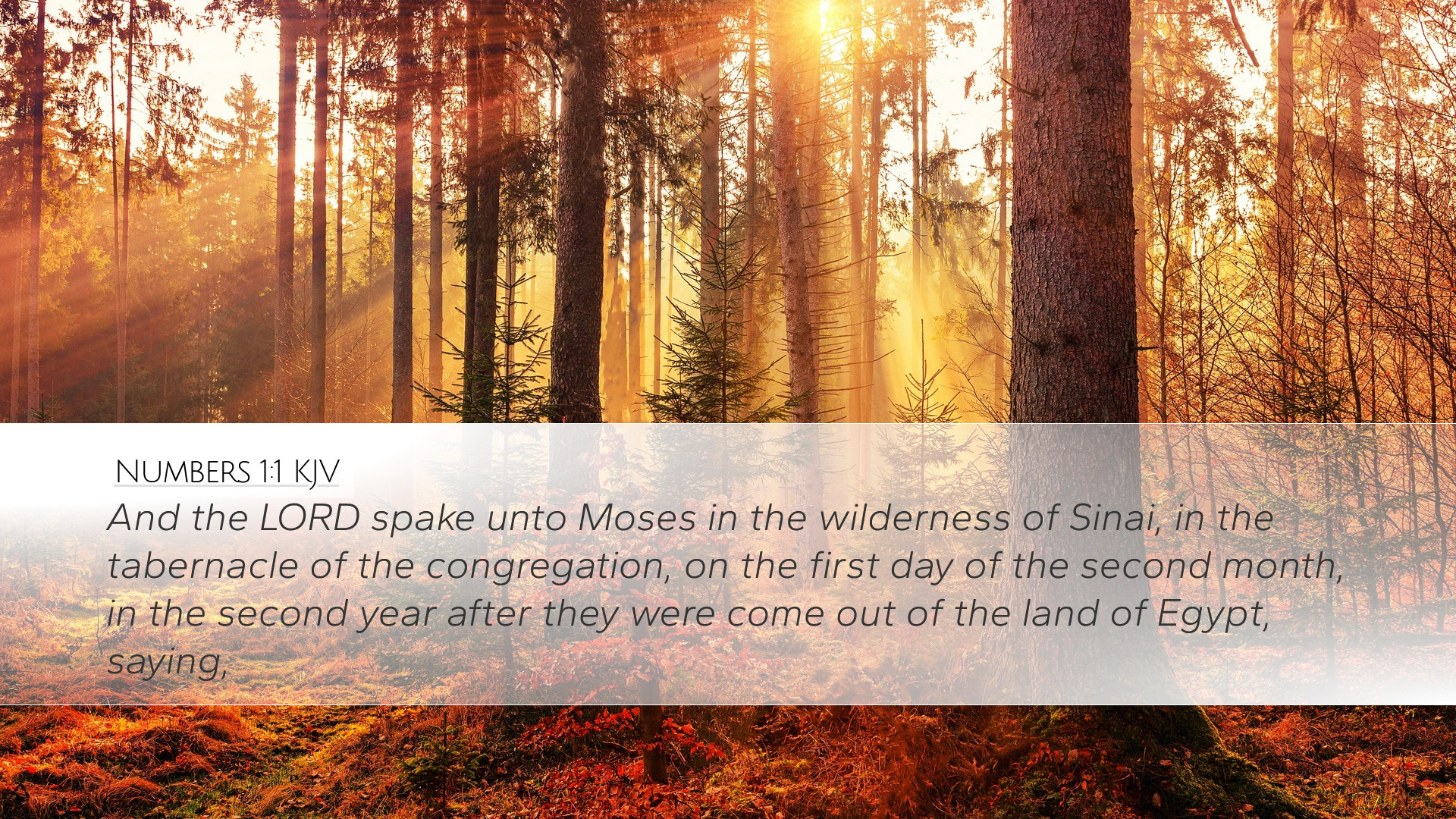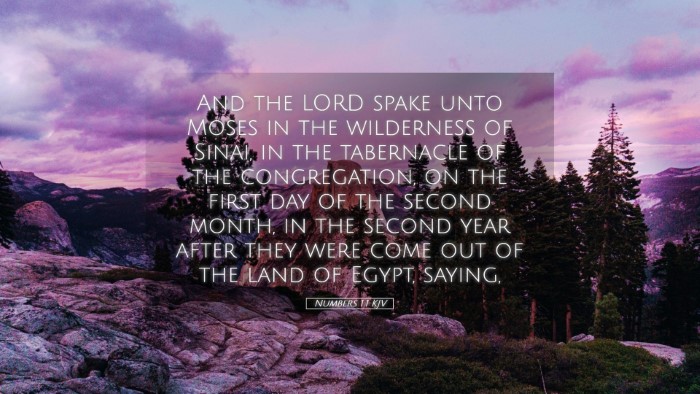Commentary on Numbers 1:1
Introduction
The verse Numbers 1:1 states, “And the Lord spake unto Moses in the wilderness of Sinai, in the tabernacle of the congregation, on the first day of the second month, in the second year after their coming out of the land of Egypt, saying.” This pivotal verse sets the stage for a significant period in Israel's history as it marks God's communication with Moses regarding the organization and census of the Israelites.
Contextual Analysis
Historical Setting
As noted by Matthew Henry, this chapter occurs during Israel's wanderings in the wilderness, specifically at Sinai. This period follows their dramatic liberation from Egypt and serves as a time for the Israelites to establish their identity as God's chosen people. The mention of the "tabernacle of the congregation" signifies the central place of worship and divine presence among the people.
Chronological Reference
Albert Barnes emphasizes the specificity of time noted in this verse. The "first day of the second month" is crucial, as it indicates that God’s instructions were timely and intended for immediate implementation. The second year after their Exodus from Egypt symbolizes a crucial juncture where the Israelites are transitioning from slaves to a distinct nation under God's authority.
Theological Implications
Divine Communication
The phrase “the Lord spake unto Moses” highlights the personal relationship between God and Moses. Adam Clarke elaborates that this showcases God’s desire to guide His people through appointed leaders. The dialogue signifies that God is not distant; instead, He actively engages with humanity, providing direction and revelation.
Significance of the Wilderness
The wilderness, often a symbol of testing in the Scriptures, presents a stark contrast between the freedom of liberation and the uncertainty of journeying without a settled homeland. This theme of wilderness underscores the Israelites' need for dependence on God for sustenance and guidance. Henry points out that spiritual growth often occurs in such barren places, where reliance on God is paramount.
Symbolism of the Tabernacle
Presence of God
The reference to the "tabernacle of the congregation" is rich in meaning. It symbolizes God’s dwelling with His people, emphasizing God's desire for relationship and communion. This is further explored by Barnes, who notes that the tabernacle signifies a physical manifestation of God's presence, a precursor to the ultimate revelation of God through Jesus Christ.
Preparation for Organization
In the context of the census that follows in the subsequent verses, the tabernacle also represents the framework through which God organizes His people into a structured community. Clarke asserts that God’s attention to detail in this organization reflects His divine order, reminding the Israelites that they are to function as a cohesive unit according to His design.
Application for Believers Today
Listening to God's Voice
Modern readers and believers are called to consider the implications of God speaking to them. Just as Moses received specific guidance, so too can believers expect God’s guidance in their lives. This demands a posture of openness and prayer, enabling a readiness to hear God's word in their own wilderness experiences.
Living in God's Presence
The tabernacle serves as a reminder of God's continual presence. Today's believers are encouraged to cultivate an awareness of God's presence within their own lives. This can be manifested through worship, community, and personal devotion, fostering an environment where they can meet with God regularly.
Conclusion
Summary of Insights
The opening verse of Numbers invites profound consideration of divine communication, the significance of communal worship, and the application of these themes within personal faith journeys. The integration of insights from esteemed commentators like Matthew Henry, Albert Barnes, and Adam Clarke reveals a rich tapestry of meaning that continues to resonate for theologians, students, and pastors alike. Understanding God’s character as one who speaks and desires order among His people enriches our comprehension of His ongoing work in the world.


